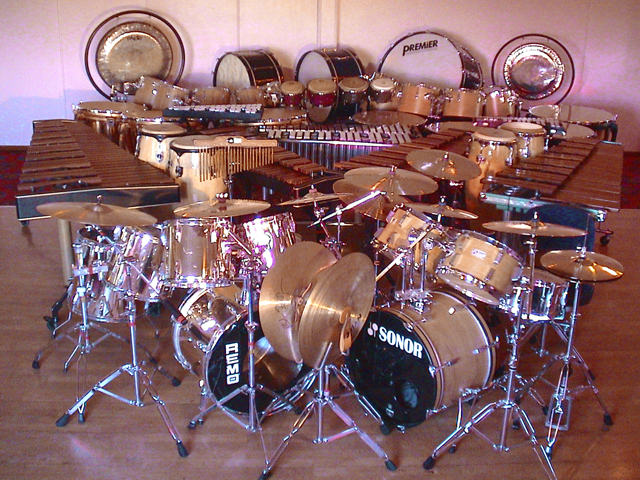At a young age I developed a liking to drumming, hitting pots and pans on occasion. My parents would turn on the dish washer as they went into their room after putting the kids to sleep and I would make up beats in my head to the rhythm of the machine. And although I haven't been in any part of a musical group since high school, I still walk to a beat and compose percussion music mentally. When you hear an obnoxious kink in the dryer from a pair of jeans, I hear a rhythm. When you hear the loud construction work on you way to work, I am tapping out a funky beat. And when the engineering side of me comes out (just ask my friends... or my wife, who hated my concrete canoe and never let me forget it) construction is cool! Blue prints are someones innovation and creativity waiting to explode into something much, much bigger.
This poem comes from a take home essay test I took in a class called History of Creativity. It is much different from my normal creative niche. The Last question of the test asked for a Sonnet with at least 10 key terms from the chapter covered by the test. Here is my Sonnet and explanation:
More and his Utopia, describes earth
In its perfection. Richelieu’s rule today
Brings pow’r to Louis, France’s noble birth.
Thirty years ‘til Majesty’s Letter say
“Be peace” ye Protestant and Catholics.
See beauty, el’gant Hands drawn by Dürer.
See splendor and be ye not hypocrites,
St. Bartholomew not Mary Stuar’.
De Vinci saw the future of mankind
And sought to give all that he could his part.
Create a better outcome with the mind,
With Ninety-five good reasons from the heart.
Ideas flow. They need no restoration.
Creature, take note with consideration.
The main theme of the sonnet is having a better world. There is a standard that Thomas More established with his book, but that standard has yet to be met. Thus, all we can do is strive to be good, look to the future, and creatively change the present. With the last line I suggest that humans have yet to reach their full potential and should look to others who have shown big “C” creativity (creativity that has changed the world) in the past. The last two lines vary from the usual emphasis because they are my main argument. The world will become a better place, but only with the help of great ideas from many sources.
So, I repeat my initial questions: Where do you look? What do you see and hear? "And if I don't?" you ask... MAKE something!

No comments:
Post a Comment